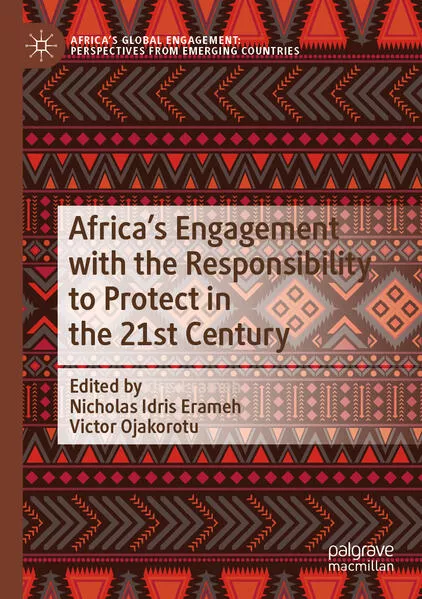
- Publikationen ca: 3
- Fragen & Antworten
Nicholas Idris Erameh
Nicholas Idris Erameh has a Bachelor of Science (BSc), a Master of Science (MSc), and a Doctor of Philosophy (PhD) in Political Science with a Specialization in International Relations from the Department of Political Science, University of Ibadan. Erameh's research interests cut across the areas of Human Security, Armed Conflict, Human Rights, Ecological Security, Holocaust and Genocide Studies, Peacekeeping, Refugee and Migration, Humanitarian Intervention and the Responsibility to Protect (RtoP). Erameh is currently a senior research fellow at the Nigerian Institute of International Affairs (NIIA) and a post-doctoral fellow at the Department of Political Studies and International Relations, North-West University, South Africa. Before joining NIIA, he taught at the Department of Political Science and International Relations, Chrisland University, Abeokuta, Ogun State. Erameh is a recipient of several grants, awards, and scholarship prizes.
Prof Victor Ojakorotu is the Deputy Director, School of Government Studies, Mafikeng at North West University, Mafikeng, South Africa. His research interests are African Politics, Nigeria, Conflict and Peace, Environmental Politics and Security. He is widely published in internationally accredited academic journals on the vexing subject of the Niger Delta. Some of books he has published on the Niger Delta are Contending Issues in the Niger Delta of Nigeria, Fresh Dimensions on the Niger Delta Crisis of Nigeria, Checkmating the Resurgence of Oil Violence in the Niger Delta of Nigeria and Anatomy of the Niger Delta Crisis: Causes, Consequences and Opportunities for Peace.
Africa's Engagement with the Responsibility to Protect in the 21st Century
This book sheds light on the practice, challenges, and prospects of the Responsibility to Protect (RtoP) amidst wide contestation, backlash, operational challenges, and expectation gaps associated with the theory and practice of the RtoP. Diverging from existing works, it provides a renewed perspective and alternatives for future deployment of the RtoP and critical insights to the readers on how issues such as support, consolidation, and institutionalization within the broader context of regional dynamics of the RtoP can be best achieved in Africa.
Africa's Engagement with the Responsibility to Protect in the 21st Century
This book sheds light on the practice, challenges, and prospects of the Responsibility to Protect (RtoP) amidst wide contestation, backlash, operational challenges, and expectation gaps associated with the theory and practice of the RtoP. Diverging from existing works, it provides a renewed perspective and alternatives for future deployment of the RtoP and critical insights to the readers on how issues such as support, consolidation, and institutionalization within the broader context of regional dynamics of the RtoP can be best achieved in Africa.
Africa's Engagement with the Responsibility to Protect in the 21st Century
This book sheds light on the practice, challenges, and prospects of the Responsibility to Protect (RtoP) amidst wide contestation, backlash, operational challenges, and expectation gaps associated with the theory and practice of the RtoP. Diverging from existing works, it provides a renewed perspective and alternatives for future deployment of the RtoP and critical insights to the readers on how issues such as support, consolidation, and institutionalization within the broader context of regional dynamics of the RtoP can be best achieved in Africa.


